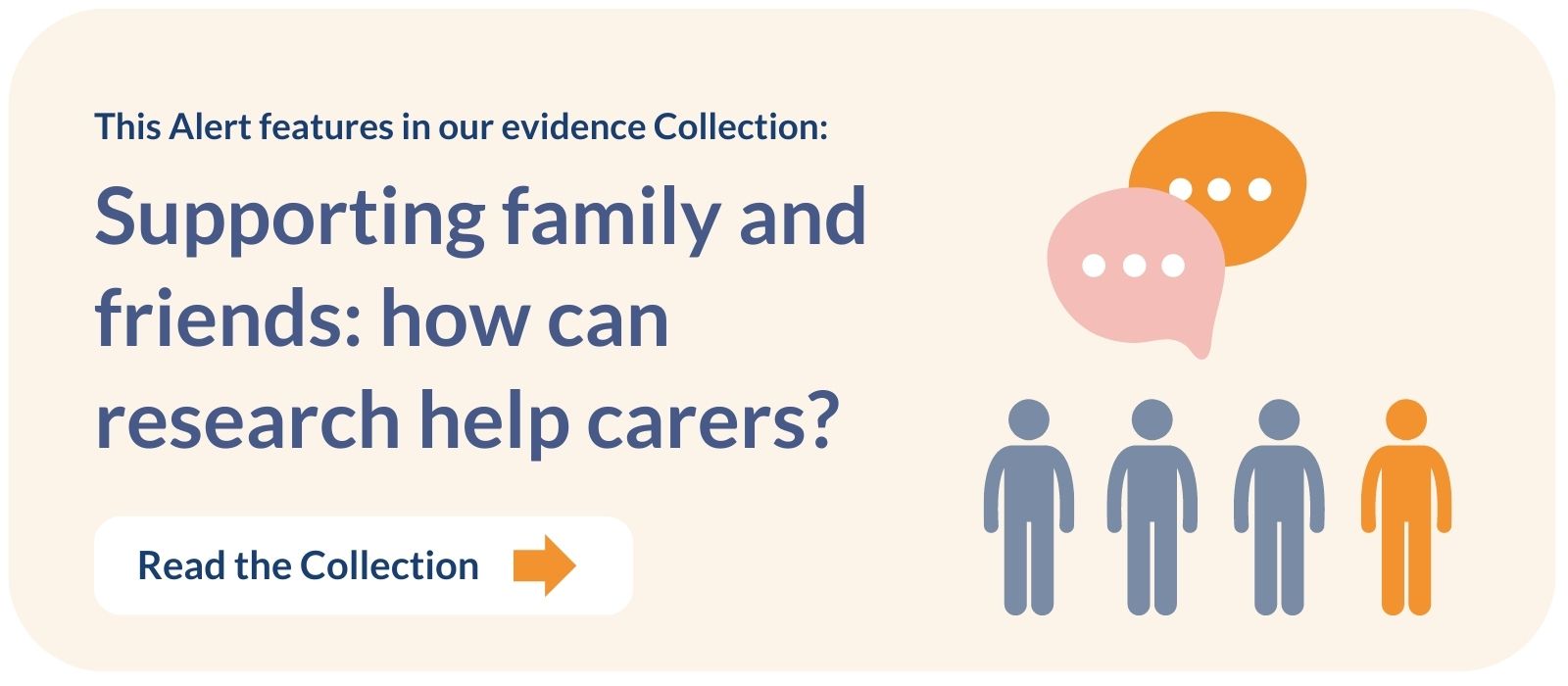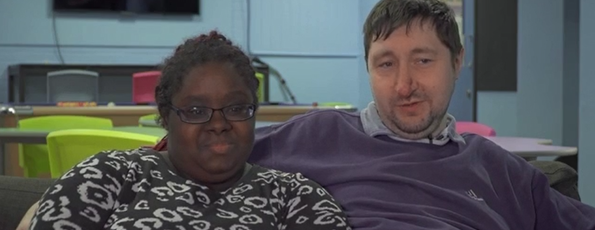This is a plain English summary of an original research article. The views expressed here are those of the authors and reviewers at the time of publication.
Many adults with learning disabilities place a high value on romantic relationships, and new research identifies the support they need to build loving partnerships – and also describes the barriers they face.
In the past, adults with learning disabilities were not thought to have the same emotional, psychological or social needs as other people, which made it difficult for people with learning disabilities to form the kind of adult relationships they wanted.
In the study, researchers asked adults with learning disabilities how they felt about love. Participants enjoyed giving and being cared for, and liked the comfort that relationships brought. Some participants recognized that maintaining a relationship required effort.
A lack of social opportunities can make it difficult for people with a learning disability to find love – and barriers can be created by social services – but specialist dating sites and strong support from family and staff can help them form relationships.
Further information about learning disabilities can be found on the NHS website.

What’s the problem?
It used to be thought that adults with learning disabilities didn’t have the same emotional or social needs as adults without learning disabilities. This has now changed, but many still lack the support they need to find love and build relationships.
Governments and care agencies need to understand the views of people with learning disabilities, as this will help them create policies and practice that treat people the way they would want to be treated.
The survey gave adults with learning disabilities the opportunity to talk about their intimate relationships and asked them what support they needed to build and maintain them.
what’s new?
The research team worked with an advisory group for adults with learning disabilities and recorded interviews with 40 men and women with learning disabilities. A diverse ethnic group participated, but only two were same-sex attracted. Half of those interviewed were in relationships at the time of the study.
Those interviewed placed great importance on having a partner. As one person said, “Someone who cares about me, who helps me through my ups and downs, who comforts me, who holds me… I feel so happy just having that.”
Many had been without a partner for much of their adult lives, and they described feelings of loneliness and alienation in this way: “I can’t imagine spending the rest of my life alone and growing old alone. I don’t think it’s a very nice place to be.”
People had a balanced view of relationships and understood the effort required to maintain them: “…we have our differences, but the important thing is that no matter how tough the situation is, we get through it.”
Common factors that helped interviewees build relationships included:
There was support from family and staff, and some interviewees described warm relationships with social care staff; opportunities to learn about relationships, and support groups to discuss all aspects of adult relationships. Specialist dating agencies helped many of the interviewees, even though they had many more male than female members. Men, and those looking for same-sex partners, could wait a long time for a date.
Common barriers to building relationships include:
Not knowing how to meet a partner. None of the interviewees had good experiences with mainstream dating sites, which they found unsafe and “full of weird people”. Dating sites were expensive and speed dating was frustrating because of the fast response time. Lack of social opportunities and funding as social services did not prioritise people’s social lives. Few interviewees had jobs and did not meet a partner at work. Barriers within social services. Shift patterns preventing day staff from taking people to social events. Concerns about safety measures for housemates if someone in the household wants to have a partner stay overnight. Lack of independence. Interviewees complained about limited privacy, having to explain where they were going and family and staff making decisions about their relationships on their behalf.
As well as writing an academic paper, the researchers also produced a video explaining their findings. They ran two workshops and screened the video to a broad group of 100 adults with learning disabilities. Many who attended the workshops recognised the experiences described in the video, which confirmed the validity of their findings.
Why is this important?
In the study, adults with learning disabilities viewed relationships as a source of joy and meaning. But care for people with learning disabilities tends to address basic physical needs. Enabling a rich and fulfilling adult life in any sense is still not a priority, the researchers said.
Support staff and family carers sometimes try to protect adults with learning disabilities from the risks associated with dating and relationships. This approach can prevent them from gaining normal life experiences. They should be protected from abuse, but researchers stress that the daily ups and downs in relationships are part of the human experience.
Adult social services, families and carers need to facilitate relationships, the study concludes. Care providers should try to reduce barriers, they say.
Here’s how you can help:
Include relationship support in individuals’ care plans to facilitate participation in social opportunities and/or promote or set up professional dating agencies.
What’s next?
The findings are consistent with previous research in the UK and overseas. Having relationships is important to people’s sense of self. Support staff need to take this into consideration when supporting adults with learning disabilities. In addition, service providers need to support and train staff how to talk about and support relationships.
The research is part of a larger project investigating the support people with learning disabilities need to form loving relationships. Other studies in the project have collected information from specialist marriage counselling services, family carers and support staff.
There are some areas where further research is needed: for example, all interviewees in this study were over 22 years old and opinions may differ among younger people; the study did not include people with the most severe disabilities; and because the study group was self-selected, they may have been more positive about relationships than other people with learning disabilities.
This study did not recruit many adults with learning disabilities who are in same-sex relationships. Autistic adults without learning disabilities were not included in the study, so more research is needed into their attitudes towards relationships.
If you are interested, please read it.
This abstract is based on the article by McCarthy M et al. “Love makes me truly happy and secure inside”: Adults with intellectual disabilities talk about love and relationships. Journal of Applied Research in Intellectual Disability 2021;00:1-11
“Love is a wonderful feeling”: A video explaining this study with adults with learning disabilities.
“Making connections and building confidence: Dating agencies for people with learning disabilities”: A video explaining the work of specialist dating and friend agencies for people with learning disabilities.
Previous studies by the same authors:
Specialist dating agencies for people with intellectual disabilities: McCarthy M, et al. Making connections and building confidence: A study of specialist dating agencies for people with intellectual disabilities. Sexuality and Disability 2020;38:3-18
How parents can support their children’s relationship building: Bates C et al. “She misses the nuances, I make the invisible visible”: The role of parents in supporting relationships with adults with intellectual disabilities. International Journal of Care and Caring 2020;5:3
How social care staff support relationships: Bates C et al. “Always trying to walk a tightrope”: the role of social care staff in supporting adults with intellectual and developmental disabilities to build and maintain loving relationships. British Journal of Learning Disabilities 2020;48:4
Funding: This research was funded by the NIHR School of Social Care Research.
Conflict of interest: The study authors declare that they have no conflict of interest.
Disclaimer: NIHR Evidence summaries are not a substitute for professional medical advice. They provide information about research funded or supported by the NIHR. Please note that the views expressed here are those of the authors and reviewers and not necessarily those of the NHS, the NIHR, or the Department of Health and Social Care.

NIHR Evidence is covered by a Creative Commons CC-BY license. Written content may be reproduced freely, provided appropriate acknowledgement is given. This license does not apply to third party commentary, audiovisual content, or linked content from other websites.

